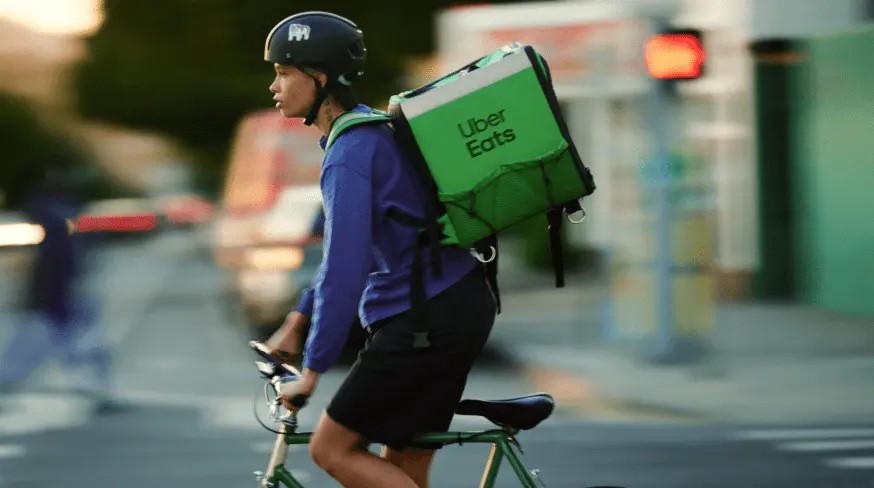New York — In a case that underscores the far-reaching power of arbitration agreements, a New Jersey couple injured in a devastating Uber crash has been denied their day in court. John and Georgia McGinty, who were passengers in an Uber that was involved in a serious collision in March 2022, recently learned that they cannot pursue a lawsuit against the company due to an arbitration clause they unwittingly agreed to when placing an order through Uber Eats.
The couple’s ordeal began when their Uber driver ran a red light, leading to a violent T-bone collision with another vehicle. Georgia sustained numerous fractures, including serious injuries to her spine, ribs, and other parts of her body, requiring multiple surgeries and extensive rehabilitation. John’s injuries, though less severe, included a fractured sternum and long-term impairment in his left wrist, leaving him with diminished mobility. The couple described the crash as a life-altering event, both physically and financially.
Seeking accountability, the McGintys filed a lawsuit against Uber, hoping to bring the matter before a jury. However, their legal options were swiftly curtailed when an appellate court ruled that they are bound by an arbitration agreement embedded within Uber’s terms of service, which they accepted while placing an Uber Eats order. The couple contends that it was their daughter, using Georgia’s phone, who clicked “accept” on the terms, but the court found that the arbitration clause, which covers disputes related to both Uber Eats and Uber rides, is enforceable.
Uber, in its defense, pointed to the fact that Georgia had agreed to the company’s terms of service multiple times, including in early 2021. The company emphasized that the arbitration clause clearly states that disputes, including those concerning personal injuries from auto accidents, must be resolved outside of court through arbitration.
The ruling, which overturned a previous decision by a lower court, has left the McGintys devastated. The earlier court had ruled that Uber’s arbitration clause was not enforceable, citing inadequate notice to users that they were waiving their right to a trial. However, the appellate court disagreed, stating that the terms were legally binding and the couple had agreed to them knowingly.
In a statement, the McGintys expressed their profound disappointment with the decision. “We are heartbroken that the court has sided with a corporation over consumers who have suffered real harm,” they said. “This decision shows how easily large companies can hide behind complex legal language to avoid accountability.”
The McGintys’ legal team is now considering an appeal to the New Jersey Supreme Court, but for now, their case remains locked in the arbitration system.
The Growing Debate Over Arbitration
The McGinty case has brought renewed attention to the widespread use of arbitration clauses in consumer agreements, which critics say unfairly restrict the legal rights of individuals. These clauses, often tucked away in lengthy terms of service agreements, require disputes to be resolved through private arbitration, a process many consumers feel is biased in favor of corporations.
This isn’t the first high-profile case to raise concerns about arbitration. In August, Disney faced backlash for attempting to enforce an arbitration clause in a wrongful death lawsuit. The company initially argued that the widower of a woman who died at one of its restaurants had agreed to arbitration when signing up for a Disney+ subscription. After public outrage, Disney reversed its position and allowed the lawsuit to proceed in court.
As arbitration clauses become more prevalent, consumer advocates are calling for greater transparency and fairness in the use of these agreements. For the McGintys, the fight for justice continues, though their path forward remains uncertain.










